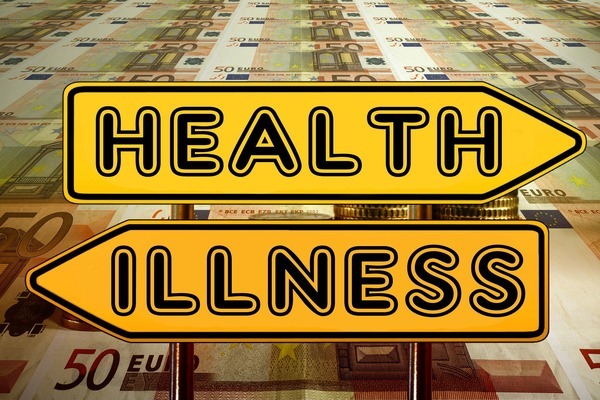
It’s no secret that healthcare in the United States is incredibly expensive and very complex.
Even if you are lucky enough to have health insurance, you may find that it doesn’t cover the things you really need it for, or leaves you with an enormous bill even if it does cover care.
No insurer is going to go out of their way to make sure you understand how to maximize your healthcare benefits, but we will. Stay with us for 11 secrets to keep your family healthier by making your benefits go further.
1. Have non-emergency procedures early in the calendar year
Most insurance plans include a deductible of some sort, certainly no less than $1,000 for an individual, but averaging about $4,000. If you have a recommendation for a non-emergency procedure, the cost can easily exceed your deductible.
Assuming you have any control over the timing, try to schedule that procedure for early in the year, so that you meet the deductible and medical expenses that pop up during the rest of the year will be covered (at least partially, depending on your plan).
2. Audit all your bills

The only thing more confusing than medical coverage is medical bills. Almost exclusively outsourced to billing companies, statistics reveal that medical bills often include errors.
Medical bills also contribute to a significant number of bankruptcies every year. Therefore, it is very important to audit all of your medical charges.
If you are too ill to undertake this, seek out a bill-paying company who can help to confirm that all the charges are accurate.
3. Maximize available tax savings

Health Savings Accounts can be helpful tools to build funds for use on medical expenses, and they are funded with pre-tax dollars.
Check with your company’s human resources department to see if you can set up a payroll deduction for your HSA contributions for maximum convenience.
4. Anticipate the effect of coverage changes
It’s great if you have set upon a course to maximize your health savings and handle non-emergency procedures early in the year, but be aware that if your coverage changes at all throughout the year, your deductible will reset and your premiums will change.
All of the regular expenses associated with seeing the doctor and getting medicine may also shift. If you choose (or are forced) to change coverage mid-year, it’s wise to make a new budget for healthcare.
5. Shop around before enrolling
Laws around health insurance are always changing, as are the plans themselves, so be sure to shop around before you enroll. You want a plan that doesn’t specifically exclude care you know or at least suspect you’ll need.
In terms of family composition, if you are not married but have a domestic partner, it’s possible that you can get covered under their plan.
And parents are currently able to keep their children on their insurance policy until age 26 – if you are fresh out of school and recently landed a new job, be sure that your employer’s coverage is as good before stepping out from under your parents’ plan.
6. Look for Unique Discounts
Insurance providers make good use of technology to minimize their risk, collecting as much data as possible about the state of our health.
Some insurers will give you a discount if you provide that information willingly in the form of a fitness tracker. Since many of us wear those anyway, it can be worth it to save a significant chunk of change.
Insurers may provide reimbursement incentives of up to $1,500 per year or agree to make deposits into your Health Savings Account.
7. Health Insurance Waivers

If you are married or have a domestic partner, you’ll definitely want to review both of your plans to see which one might be best for the both of you.
Maybe you’ll each decide to stick with what your employer offers. But if you choose to cancel one policy and move under your spouse’s, you may be eligible for alternative compensation from your employer in return for waiving the company insurance plan.
8. Consider Getting a Health Insurance Broker
Health insurance is incredibly complex and always changing, so it can be wise to hire a broker who really understands all the ins and outs of various policies.
They will explain the various types of plans, such as HMO and PPO, as well as parse your wants, needs, and budget into a few policies that could work for you.
The initial investment in a broker could save you tons of money later in health care costs on an ill-fitting plan.
9. Save Money on Prescription Drugs

If you take any regular prescriptions, ask all potential insurers what coverage you will have for your medications, and if it leaves you significantly out of pocket, keep shopping.
Note, however, that various versions of the same medication may rank differently so there may be more affordable choices that could work for you.
In any case, don’t hesitate to ask all of your local pharmacists if they have any programs to help people afford their medication – many do.
10. Find Disease-Specific Assistance
Most hospitals work with various charities and organizations that provide help for people who can’t pay their medical bills due to a specific illness.
Don’t hesitate to ask for help if you receive a diagnosis that your insurance won’t cover.
11. It’s Okay to Negotiate
It can be hard to think about negotiating when you are critically ill, but it’s always worth it to ask your billing department, doctor, and health care facilities if they are open to it.
Some may provide a discount if you pay in advance, or in cash. Your doctor may also consider lowering his or her fees if you are concerned about a high deductible or other barrier to timely payment.
